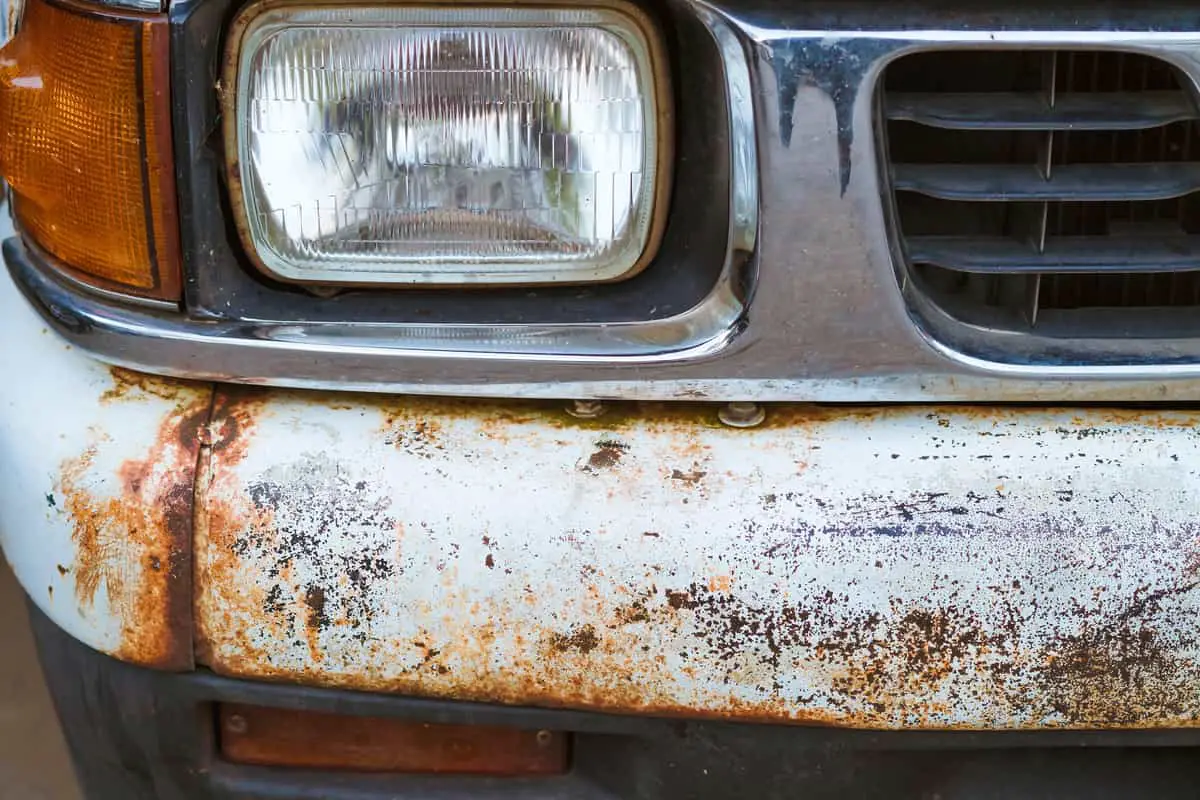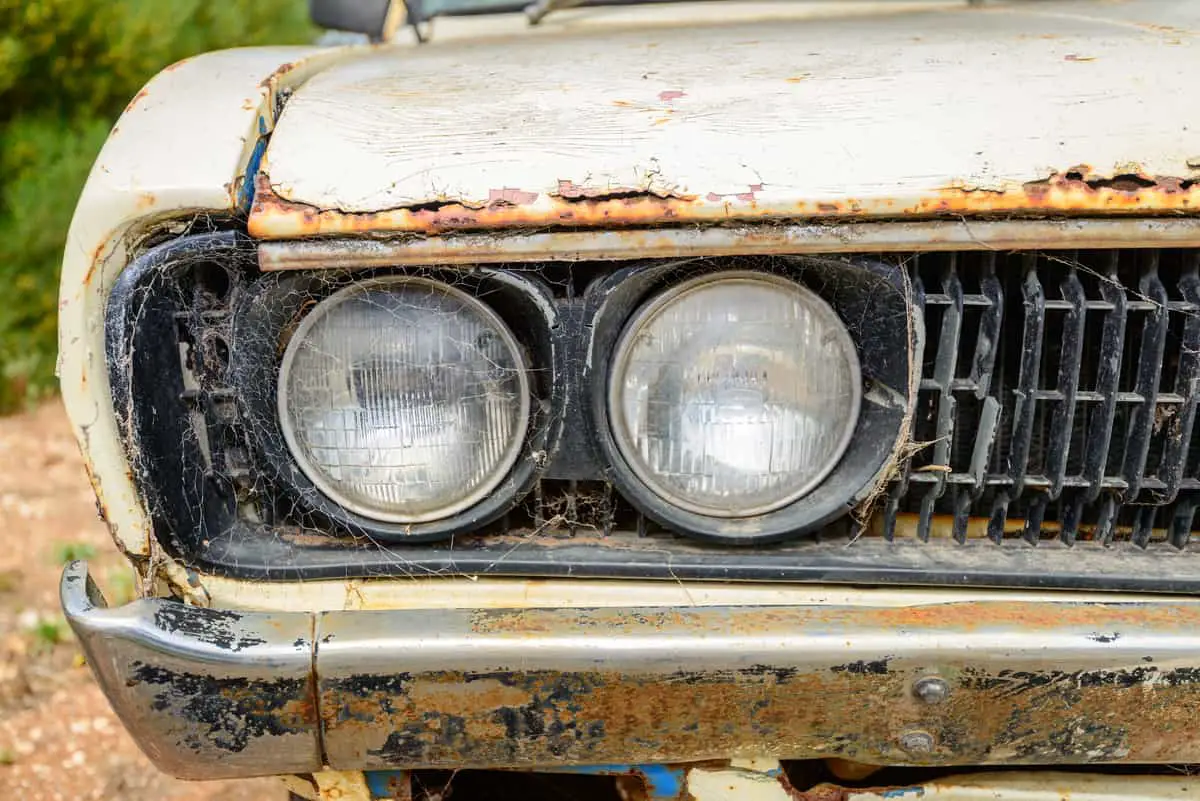Rusting happens a lot to cars, and unfortunately, Chevrolet vehicles aren’t an exception. Maybe you or someone you know who owns a Chevy has experienced rust. So why do Chevys appear to rust so bad, and how do they compare with their rival, Ford?
Chevys do not necessarily rust more than Fords. How you drive and care for your truck dictates the extent to which or how soon it will deteriorate. Either Ford or Chevrolet trucks exposed to snow or road salt will rust more than their counterparts under drier conditions.
But what led to the notion that Chevys rust more than Fords? Read on to learn details of the supposedly old-school Chevys’ wax frame coating vs Fords’ E-coating and how it relates to rusting. This article will also help you understand how to take care of your truck to avoid rusting and answer why trucks rust more than other cars.

What Is Rusting, and How Does It Occur?
Before I go into detail on why Chevys rust more than Fords (or at least, why it seems that way), I need to explain how rusting happens. Otherwise, it’ll be difficult to say either way as to why Chevys rust more than Fords (if that’s indeed the case).
Rusting is an oxidation reaction where iron reacts with water and oxygen to form hydrated iron (III) oxide — the reddish-brown substance you might see on the frame of your Chevy truck. Oxygen and iron have opposite charges that attract them to each other like a magnet.
When oxygen and iron come together, they react to form ferric oxide that’s usually red or black. This reaction is faster and more severe in humid conditions. You may also experience severe rusting where your truck is exposed to acids, chemicals, and coastal salts.
GM’s Wax Frame Coating Vs. Ford’s E-Coating
According to Big Truck Big RV (BTBRV), vehicle manufacturers should appropriately coat their truck frames to prevent rusting deterioration. Various automakers resort to multiple processes to coat their vehicles. For example, Ram and Ford moved to E-Coating instead of the decades-old wax coating method, which is used by brands like Chevys.
But what exactly is the difference between wax coating and E-Coating?
What Is E-Coating?
E-Coating involves cleaning the truck frame in various cleaning and phosphating solutions and charging it up to 400 volts in an electrically charged tank. Like most other body parts, the frame is then passed through a paint tank, causing the paint particles to attach to its surfaces uniformly.
As I mentioned before, rusting occurs due to oxygen and iron coming into contact with each other. The e-coating process uses a relatively thin iron coating, reducing the likelihood of rust. However, compared to wax coating, it only provides a marginally better corrosion resistance (if at all).
GM’s Frame Wax Coating
Specific GM models like the Silverado, Sierra, and Escalades come with wax-based factory coating on their frames. The automaker applies the coating at the factory by dipping the frame’s bare metal into the coating, explains Valugard.
This Youtube video explains whether the 2019-2020 Chevy Silverado comes with a wax-coated or E-Coated frame:
How Do Wax Coating and E-Coating Compare?
The waxing on Chevys’ frames serves the same purpose as the E-Coating on Ford frames. BTBRV only takes issue with the waxing being old and supposedly inferior. Also, BTBRV says that scraping your finger on the underneath of a Chevy’s truck frame would remove the wax coating.
In reality, Chevy trucks brave treacherous terrains worldwide. Wouldn’t you hear plenty of complaints from Chevy owners if it were so easy to scrape off the coating? And wouldn’t Chevys rust so fast within the first days of ownership? The question should be, “Why do trucks rust so bad?” instead.
Why Do Trucks Rust So Bad?
Trucks rust so bad because they brace the hard winter use and exposure to road salts, especially compared to other vehicles. Their rusting more than other cars has nothing to do with an inferior build but exposure to rust-accelerating conditions.
Also, according to Forbes, trucks are increasingly outselling cars, so it’s safe to assume there are more trucks than cars on the road in recent years. Therefore, trucks are more likely to get exposed to conditions that cause rust (e.g., inclement weather), giving the impression that they’re more likely to corrode regardless of their brand.
Could Chevys’ Boxed Frames Be Causing Them to Rust More Than Fords?
Chevy’s boxed frames aren’t necessarily causing them to rust more than Fords. There are claims that Chevys’ boxed frames trap water and debris more than C-channels in Fords and other trucks. This is the vague (but unsupported) theory people give for Chevys rusting more than Fords.
How To Protect Your Chevy From Rusting
There is no proven way to ensure 100% that your Chevy doesn’t rust. However, I will give you tips to reduce your Chevy’s chances of rusting frequency and severity.
- Clean your Chevy adequately and thoroughly. Cleaning your truck well will remove potentially corrosive debris and road salts.
- Visually inspect your truck. Keep track of rust and its buildup. Check the underneath of your truck from time to time and address any signs of rust or coating deterioration.
- Use protective coating. It would be best to check your user’s manual to see what protective coatings are compatible with your car.
You can check out this Clear Bra PPF Pre-cut Kit (available on Amazon.com) to protect your Chevy Silverado 2019-2020 front bumper grill. It’s made in the USA and can cover signs of deterioration due to scratches or chips.
If nothing else, you can always drop by your nearest auto repair shop and ask for tips on how to reduce rusting on your Chevy.

Final Thoughts
Chevys do not necessarily rust more than Fords. There is no clear-cut hard evidence to support the claim that they do.
Although Chevys have had quite a bad reputation due to high reported rust cases, most cars or trucks are prone to rust under the right conditions. If you maintain your Chevy properly, it shouldn’t rust more than vehicles from other brands.
Sources
- BBC Bitesize Redox, rusting and iron
- BTBRV: Towing RVs, Trailers, and my opinion about safely doing it.
- Enviro-Strip (GB): E-Coat Process
- Tim’s Tech Tips: GM frames.
- A Man and His Gear: 9 Common Reasons Why Pickup Trucks Overheat
- Chevrolet Forum: Is Wax Frame Coating the Secret to Success for Chevy Trucks?
- Products Finishing: What is Electrocoating?
- Forbes: Light Trucks Now Outselling Cars 3-to-1
